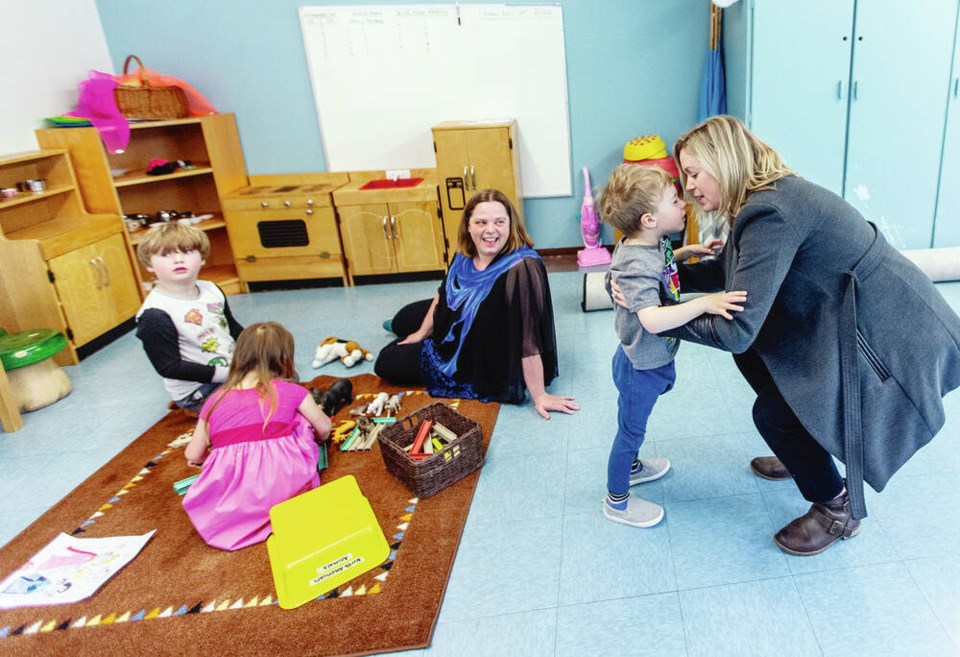After losing three early childhood educators in a matter of weeks, the administrator of Little Acorn Care Centre in Fernwood was just an hour from holding a lottery to decide which half of the families it could keep.
Relief came in the form of a new hire.
“In the 11th hour, we were able to secure a staff member which allows us to service all 43 families that we have right now,” said Mira Laurence, executive director of the Oaklands Community Association. “It’s been a roller-coaster for the families.”
Little Acorn, a non-profit care centre for toddlers ages three to five in Oaklands Neighbourhood House, has 48 licensed child-care spots but was considering having to reduce to 24 after three workers left. Two workers took jobs in an unrelated industry and one went to another care centre for higher wages.
Parents were notified on April 22 of a lottery system to decide who could stay and go.
Laurence said the centre considered trying to cut families by seniority, or by considering who had more than one child at the centre, but decided a digital lottery would be the fairest way. The 24 families chosen would retain their spots, and the centre would work with the remaining families to find solutions.
“Where do you go if you don’t have family here?” Laurence said. “What do you do? And in this city, which we know is an expensive city to live in — you basically need a dual income to be able to survive, to afford your child care — so what do you do if you don’t have that?”
Chelsey Rossner, who works in wealth management, and her husband, an electrician, have their four-year-old son, Grayson, at the centre. Their daughter, now in kindergarten, also attended the centre.
“When you get an email in your inbox saying that they’re being forced to reduce numbers, it’s very anxiety inducing,” Rossner said. The couple found a patchwork of potential fixes but were devastated by the thought of losing their child care.
Rossner thinks the government needs to do more to help with the cost of training early childhood education workers and providing a competitive wage to recruit and retain them.
Training to become an early childhood educator takes about a year attending full-time or two years part-time. Once working, the average wage is $25 an hour, according to the province. Laurence said it’s generally thought the wage should be at least $27.
In the 2022 budget, the provincial government committed $80 million over three years to give all early childhood educators directly employed by licensed child care programs an extra $4 an hour. Previously, only front-line early childhood educators received the wage enhancement. Katrina Chen, B.C.’s minister of state for child care, said as a single parent she’s very aware of the issues faced by Little Acorn and others.
The province is working on “dozens of strategies” to recruit, train and retain more early childhood educators, Chen said. They include doubling the number of training seats and offering bursaries “that cover the vast majority of tuition fees depending on the cost,” reducing the cost of child care for families, doubling post-secondary institution training seats, enhancing the salaries of early childhood education workers, and working toward a wage grid to bring in predictable and stable salaries and wage growth across the industry.
“We’ve accomplished a lot, but definitely more work to do,” she said.
“And if people have creative ideas, I’m more than welcome to hear those ideas.”
At Oaklands, the hiring of a staff member for Little Acorn provides only a temporary reprieve. The community association is still looking for staff for two new child care centres just up the street beside Oaklands Elementary School. In December 2019, the province announced the school would get 51 child care spaces, to be operated by the community association.
“Our job now is to find more people to be able to fill these positions,” Laurence said.



